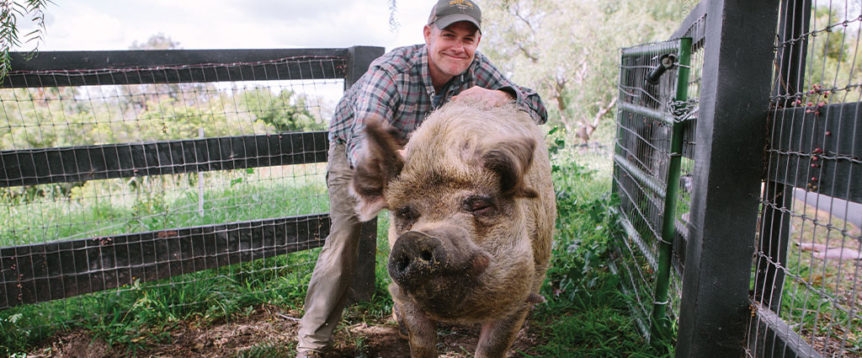Their version of a farm would be different: plants, wildlife, livestock—all working together.
And that is exactly what Molly and John Chester accomplished with Apricot Lane Farms, featured in the award-winning documentary The Biggest Little Farm. John—a filmmaker and farmer—filmed the movie over eight years, capturing their quest to reclaim a dry, dusty, infertile swath of land in Moorpark, Calif., and restore it to a beautiful, balanced regenerative working farm and ecosystem.
“The process of getting the whole film made was eight years, and over that time, a number of things stood out,” John says. “Generally, it was the resilience and agility that an ecosystem has to return to better than what it was with some consciousness from the stewards and for the consequences of the methods we used.”
With the help of agricultural savant Alan York, who taught them about biodiversity, the Chesters planted wide varieties of fruit trees and crops and fought off pests by siccing ducks on snails and owls on gophers. They also learned methods of sequestering water and improving and regenerating all-important topsoil by planting cover crops and spraying “tea” brewed from compost fertilized by worms.
“We’ve created an ecosystem that becomes its own immune system. That’s what it’s supposed to be. We’re talking about an integrated, complex biological web that is constantly ebbing and flowing, trying to find balance,” John says.
You can tour the farm yourself to learn more. Visit apricotlanefarms.com/press-and-events/tours.
Stream The Biggest Little Farm on Prime Video, Hulu, YouTube, Google Play or Vudu.

